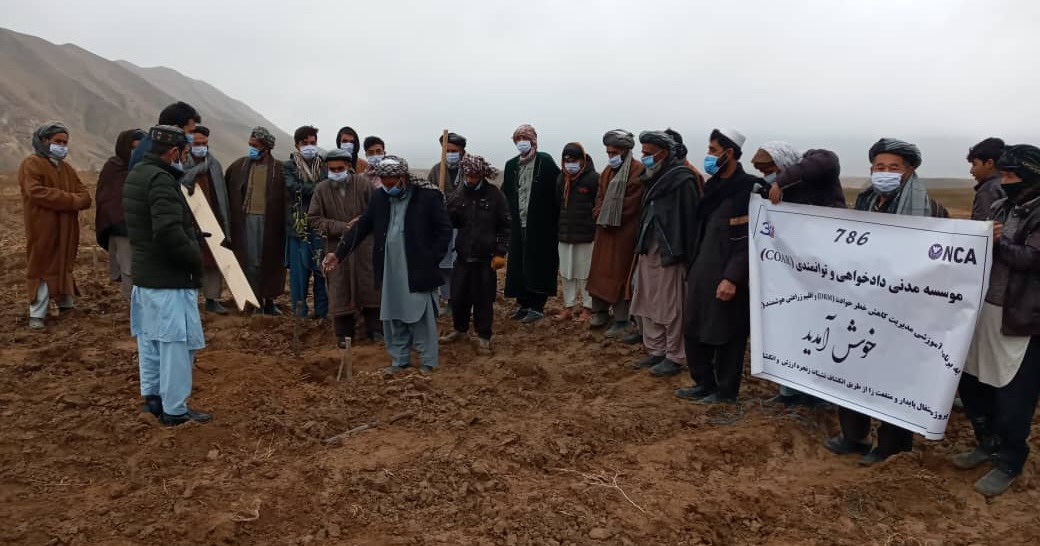
By Abdul Halim, Director General, Citizens Organization for Advocacy and Resilience (COAR), Kabul, Afghanistan
Citizens Organization for Advocacy and Resilience (COAR) formerly known as Coordination of Afghan Relief (CoAR), established in 1989, is a national NGO formally registered under the NGO laws of the Islamic Republic of Afghanistan. It is a fully non-profit, non-political, non-sectarian organisation, functioning under the fully democratic governance of its elected Board-of-Trustees and technically operating under its Board-of-Management. COAR has a triangulated transparent accountability system under which we report directly to the local communities, funders/donors and the Afghan government, both at local and national levels. Financially, COAR is a portfolio of an average annual budget of 7 million USD, using multi-currency budget.
COAR, as non-profit humanitarian and development organisation, strongly believe in a strategy of complementarity and synergy, rather than working in operational segregation, individualism and a policy of monopolisation. We at COAR, based on our past 34 years of work experience in the field of humanitarian and community development operations, strongly believe that human development and alleviation of human suffering can best be addressed and healed through humanitarian cooperation and partnership within a transparent, accountable and well-defined frame of action for common human goals and purposes. We thus, in 2008 established Civil Society Empowerment Network (CEN) of 13 sister NGOs, mainly to synergise efforts and effectively utilise available resources for common humanitarian goals and cross-fertilise our technical capability in the field and at strategic level human rights advocacy and lobby. Indeed, we are a human rights-based organisation as we strictly observe in all policies and operations: participation, empowerment, accountability, non-discrimination, equality and legality. We as a civil society organisation, strongly believe in human rights-based development and mandatory introduced since 2008 by the UN system.
1. Environmental protection, disaster risks reduction and climate change
Afghanistan has always been a remote, harsh and poor nation. Certain aspects of its geography, climate, people, economy, history of conflict, education, and health conditions are essential for understanding the country and its current humanitarian crisis. Afghanistan is in the midst of a profound humanitarian crisis resulting primarily from long-standing armed conflict, a devastating drought, and massive population migrations. By 2015, after years of conflict and turmoil, Afghanistan had achieved many milestones in diverse sectors including agriculture, education, health, governance and infrastructure.
To build on these achievements, humanitarian action must understand and where necessary adapt to these transitions to ensure those affected by conflict or disasters are not left behind. In this view, of educated Afghans for the sympathy with Afghan refugees in Pakistan and war, conflict affected people in the rural areas of Afghanistan gathered in Peshawar and established an NGO under the name of Citizen Organization for Advocacy and Resilience (COAR) & has started its activities in the refugees’ camps in Peshawar and soon extended to inside of Afghanistan.
Initially, CoAR undertook emergency projects such as water supply and irrigation in the Moqur district of Ghazni province and eventually extended its activities to Wardak and Logar provinces. Later, CoAR expanded its humanitarian assistance to other provinces of Afghanistan. Today, CoAR is implementing emergency projects in different sectors for Internally Displaced People (IDPs), returnees and Waziristan refugees around the country. the organisation strategically focuses more on Disaster Risk Reduction (DRR) and environment protection. Therefore. CoAR established SHARQ Academia for further technical and scientific study about DRR for the young generation as well as for those government and NGO staffs who are working in the field of DRR. So far, this is the first higher education institute which was established by an NGO. The first batch students’ graduation took place in March 2017. The graduates are now working as professionals in the field of DRR.
Currently COAR is the key member of DRRWG, Afghanistan National Disaster Management Authority (ANDMA) and Asian Disaster Reduction & Response Network (ADRRN), Common Humanitarian Standards (CHS) Alliance, Principled Humanitarian Aid Partnership (PHAP) and Network for Empowerment Aid Response (NEAR).
COAR has developed its capacity in response to the needs in emergency outbreaks, as follow:
The main objectives of the humanitarian assistance, DRR and environmental protection department are:
Through humanitarian, DRR and Emergency preparedness (EP) departments the following activities have been implemented:
2. SHARQ and GRTV
COAR has established SHARQ University and Gorbat Radio TV in 2010. Gorbat radio TV broadcasts DRR messages, DRR awareness programmes, roundtables of technical and professional experts in DRR. We believe media play a vital role in raising awareness about disasters, warning of hazards, gathering and transmitting information about affected areas, alerting government officials, relief organisations and public on the specific concerns of affected populations in time of disasters, and in facilitating discussion about disaster preparedness and response. The success of this radio and TV station in providing information about DRR and environmental protection has been felt all over the country. As such, this radio and TV station plays and active role in community awareness especially in the field of DR and environment protection.
Photo caption: Terracing and trees plantation in the mountain areas of Faryab province of Afghanistan, 2017.
Disclaimer: The views expressed in this piece are those of the author/s and do not necessarily reflect the views or policies of AIDMI.